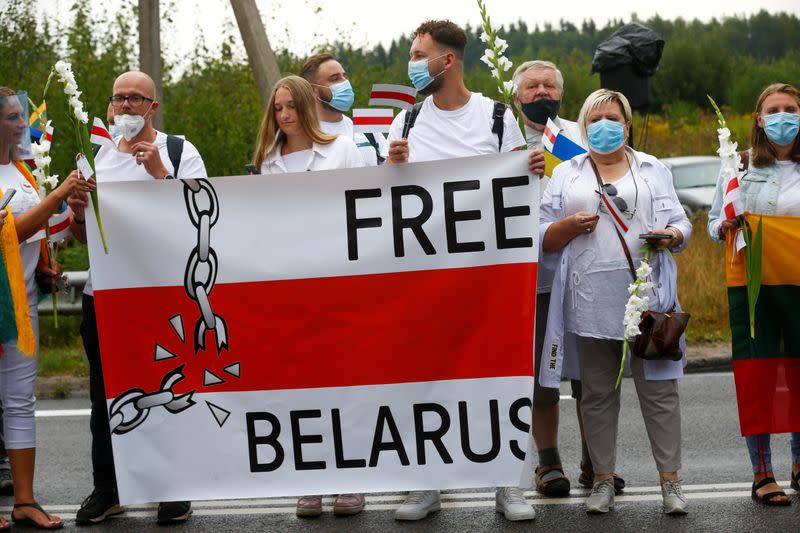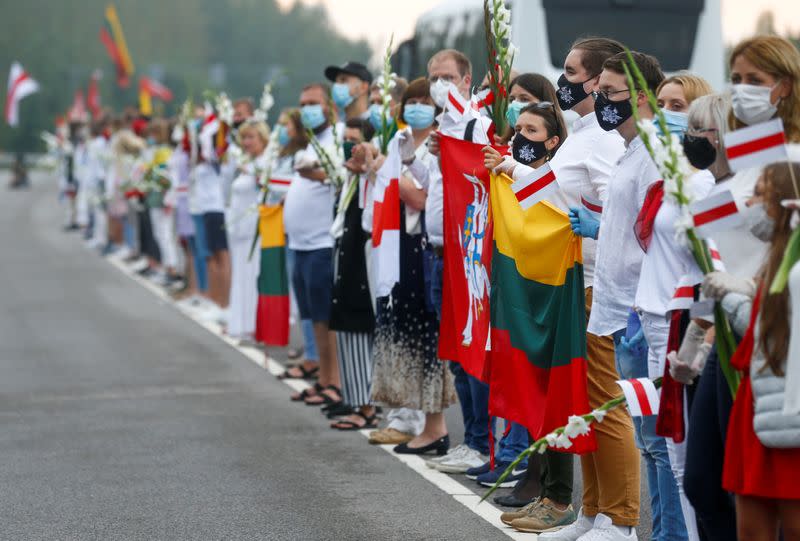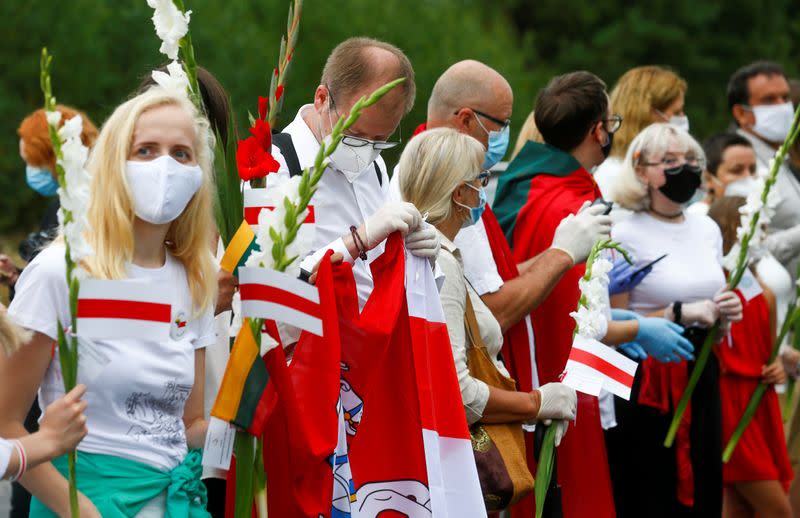Lithuanians stand in vast chain of support for Belarus opposition
VILNIUS (Reuters) - Lithuanians stood in a 35,000-strong human chain stretching 34 km (21 miles) from central Vilnius to the Belarus border on Sunday to show support for protesters in Belarus and opposition leader Sviatlana Tsikhanouskaya, who has taken refuge in the country.
"More than anyone else, you can understand Belarusians, because not so long ago you went through the same as we do now," Tsikhanouskaya said in a pre-recorded address.
She did not attend due to security concerns, her team said.
Tsikhanouskaya was the main opposition candidate in an Aug. 9 election in which President Alexander Lukashenko claimed victory - a result that opponents say was rigged and that triggered huge protests against him. Minsk's streets were again packed with protesters on Sunday.
"I am proud my nation heeded the call and came here to encourage Belarus", Lithuanian President Gitanas Nauseda told the gathering in his country, standing near its end at the Belarus border. "We are not indifferent, and we will never be indifferent".
U.S. Ambassador to Lithuania Robert S. Gilchrist was in the chain, holding the white-red-white flag that was briefly Belarus' flag in early 1990s and has become a symbol of its anti-government protests.
"My message is that I'm pleased to join so many people who are demonstrating such unity with people of Belarus", he told reporters.
The human chain marked the anniversary of a mass protest against Soviet rule on Aug. 23, 1989, when 2 million people joined arms across the three Baltic states of Estonia, Latvia and Lithuania.
Known as the Baltic Way, it was one of the best examples of a peaceful protest against an unaccountable power in recent decades in Europe, said Linas Kojala, director at Eastern Europe Studies Centre, a think-tank in Vilnius.
"It sent a message that we want a different Lithuania, no longer occupied by the Soviet Union, and today's event is saying that Lithuania wants to see a different Belarus," he told Reuters.
(Reporting by Andrius Sytas; Editing by Frances Kerry)





